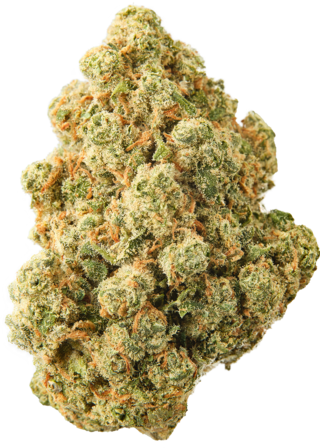
The Drug Enforcement Administration (DEA) is a United States federal law enforcement agency under the U.S. Department of Justice tasked with combating illicit drug trafficking and distribution within the U.S. It is the lead agency for domestic enforcement of the Controlled Substances Act, sharing concurrent jurisdiction with the Federal Bureau of Investigation, the U.S. Immigration and Customs Enforcement, and U.S. Customs and Border Protection. However, the DEA has sole responsibility for coordinating and pursuing U.S. drug investigations both domestically and internationally.

Proposition 215, or the Compassionate Use Act of 1996, is a California law permitting the use of medical cannabis despite marijuana's lack of the normal Food and Drug Administration testing for safety and efficacy. It was enacted, on November 5, 1996, by means of the initiative process, and passed with 5,382,915 (55.6%) votes in favor and 4,301,960 (44.4%) against.

Marc Scott Emery is a Canadian cannabis rights activist, entrepreneur and politician. Often described as the "Prince of Pot", Emery has been a notable advocate of international cannabis policy reform, and has been active in multiple Canadian political parties at the provincial and federal levels. Emery has been jailed several times for his cannabis activism.
Heaven's Stairway was an Eastern Canadian cannabis seedbank, supplying around 300 different cannabis strains. Established in 1998, the Montreal-based company imported seeds from New Zealand and the Netherlands and shipped them worldwide, especially to customers in Canada, the United States and Europe. On or around January 31, 2006, the company was raided and their websites were taken down. A two-year investigation by the Royal Canadian Mounted Police's Project Courriel seized 200,000 cannabis seeds, US $183,000 and three gold bricks. The company's owner Richard Hratch Baghdadlian, 38, aka Richard Calrisian, from Marsan Street in Montreal, and six other persons who operated the Heaven’s Stairway company have been charged with importing and trafficking in cannabis.

Cannabis sinsemilla also known as sensimilla, sinse or sensi is the female Cannabis plant that has not been pollinated and therefore does not develop seeds, increasing the concentration of cannabinoids and terpenes. This cultivation technique was developed in Sinaloa, Mexico, in the 1970s, by the drug trafficker Rafael Caro Quintero and consists of separating male plants as soon as they are known to be male, in order to avoid pollination of female pistils. The seeds are not useful for recreational purposes, and require the plant to make a great expenditure of energy that could be invested in increasing the tetrahydrocannabinol (THC) of the inflorescences (buds).

The Campaign Against Marijuana Planting (CAMP) is a multi-agency law enforcement task force managed by the California Department of Justice and composed of local, state and federal agencies organized expressly to eradicate illegal cannabis cultivation and trafficking in California. Since its establishment in 1983, more than 110 agencies having participated, making CAMP one of the largest law enforcement task force in the United States.
The Guadalajara Cartel, also known as The Federation, was a Mexican drug cartel which was formed in 1980 by Miguel Ángel Félix Gallardo, Rafael Caro Quintero, and Ernesto Fonseca Carrillo in order to ship cocaine and marijuana to the United States. Among the first of the Mexican drug trafficking groups to work with the Colombian cocaine mafias, the Guadalajara Cartel prospered from the cocaine trade. Throughout the 1980s, the cartel controlled much of the drug trafficking in Mexico and the corridors along the Mexico–United States border. It had operations in various regions in Mexico which included the states of Jalisco, Baja California, Colima, Sonora, Chihuahua and Sinaloa among others. Multiple modern present day drug cartels such as the Tijuana, Juárez and Sinaloa cartels originally started out as branches or "plazas" of the Guadalajara Cartel before its eventual disintegration.

Jorge Cervantes is the pen name of George Van Patten, an American horticulturist, publisher and writer specializing in indoor, outdoor, and greenhouse cultivation of medical cannabis.

Dana Albert Larsen is a Canadian author, businessman, philanthropist and activist for cannabis and drug policy reform. Larsen currently operates businesses and non-profit societies in Vancouver including The Medicinal Cannabis Dispensary, The Medicinal Mushroom Dispensary, The Coca Leaf Cafe, Pothead Books, and the Get Your Drugs Tested centre.

A grow house is a property, usually located in a suburban residential neighbourhood, that is primarily used for the black market production of marijuana, it may be used for the cultivation of other drugs such as psilocybin mushrooms.

Cannabis in Oregon is legal for both medical and recreational use. In recent decades, the U.S. state of Oregon has had a number of legislative, legal, and cultural events surrounding use of cannabis. Oregon was the first state to decriminalize the possession of small amounts of cannabis, and among the first to authorize its use for medical purposes. An attempt to recriminalize possession of small amounts of cannabis was turned down by Oregon voters in 1997.

Cannabis in California has been legal for medical use since 1996, and for recreational use since late 2016. The state of California has been at the forefront of efforts to liberalize cannabis laws in the United States, beginning in 1972 with the nation's first ballot initiative attempting to legalize cannabis. Although it was unsuccessful, California would later become the first state to legalize medical cannabis through the Compassionate Use Act of 1996, which passed with 56% voter approval. In November 2016, California voters approved the Adult Use of Marijuana Act with 57% of the vote, which legalized the recreational use of cannabis.

A grow shop or growshop is a retail store that sells equipment and supplies for growing plants indoors. Types include stores selling hydroponic systems for horticulture, and those devoted to cannabis cultivation.
Martin Heydt is an American businessman who founded the Worm's Way Group and served as its president and CEO until 2014. Heydt purchased an abandoned bait shop near Bloomington, Indiana in 1985 and turned the 500-square-foot building into the first Worm's Way indoor gardening store.
Nevil Martin Schoenmakers was an Australian-born cannabis breeder known for founding the first cannabis seedbank, which was called "The Seed Bank of Holland", in the early 1980s in the Netherlands. This was also the first seed company to advertise directly to the public in High Times magazine.

Cannabis in Washington relates to a number of legislative, legal, and cultural events surrounding the use of cannabis. On December 6, 2012, Washington became the first U.S. state to legalize recreational use of marijuana and the first to allow recreational marijuana sales, alongside Colorado. The state had previously legalized medical marijuana in 1998. Under state law, cannabis is legal for medical purposes and for any purpose by adults over 21.

Terms related to cannabis include:
During the administration of American President George H. W. Bush (1989–1993), the United States largely followed the precedents set by the cannabis policy of the Reagan administration, including prosecution of the War on Drugs.
Sinsemilla Tips was an American magazine founded in 1980 providing advice for indoor growers of cannabis. The founder was Tom Alexander who based publication of this and another magazine, The Growing Edge, in Corvallis, Oregon. Alexander distributed the first run of 1,000 copies out of his car from the Emerald Triangle to Seattle.












